- Home
- W. Somerset Maugham
The Gentleman in the Parlour Page 2
The Gentleman in the Parlour Read online
Page 2
Paul Theroux, 2009
Preface
I think it is very well for a novelist to give himself a rest now and then from writing fiction. It is a dreary business, to write a novel once a year, as many authors must do, to earn their year’s keep or for fear that if they remain silent they will be forgotten. It is unlikely, however fertile their imagination, that they will always have in mind a theme that so urgently demands expression that they cannot help but write; it is unlikely too that they can create characters, fresh and vivid, that they have not themselves used before. If they have the story-teller’s gift and know their craft, they will probably turn out an acceptable piece of fiction, but it is only by good luck that it will be anything more. Every work an author produces should be the record of a spiritual adventure of his own. This is a counsel of perfection. The professional author cannot hope always to follow it, he must often content himself with the smaller merit of producing a workmanlike piece; but it is one that it is well for him to bear in mind. Though the variety of human nature is infinite, so that it might seem that the writer need never want for models on which to create his characters, he can only deal with that part of it which is in accordance with his own temperament. He puts himself into the shoes of his characters; but there are shoes he cannot get into. There are people so alien to him that he can get no hold on them. When he describes them he will describe them from the outside, and observation divorced from sympathy can seldom create a living being. That is why the writers of fiction tend to reproduce the same types; they astutely change the sex, the station, the age, the appearance of their characters; but if you look at them closely you will find that they are the same persons reappearing in different guise. No doubt the greater the novelist the larger the number of persons he is capable of creating, but even with the greatest, the number is determined by his own limitations. There is only one way in which he can cope to some extent with the difficult situation: he can change himself. Here time is the prime agent. The writer is fortunate who can wait till this has effected such a change in him that he can see what is before him with fresh and different eyes. He is the variable, and the changing quantity gives an altered value to the symbols with which he is equated. But change of scene also, on one condition, can do much. I have known writers who made adventurous journeys, but took along with them their house in London, their circle of friends, their English interests and their reputation; and were surprised on getting home to find that they were exactly as when they went. Not thus can a writer profit by a journey. When he sets out on his travels the one person he must leave behind is himself.
This book is not like On a Chinese Screen, the result of an accident. I took the journey it describes because I wanted to; but I had from the beginning the intention of writing a book about it. I had enjoyed writing On a Chinese Screen. I wanted to try my hand again on the same sort of subject, but on a more elaborate scale and in a form on which I could impose a definite pattern. It was an excercise in style. In a novel the style is necessarily influenced by the matter and a homogenous manner of writing is hardly practical. The description of a state of mind demands a different mode of expression from the recital of incident; and dialogue, which should at least give a reasonable impression of current speech, cannot but preclude a uniformity of effect. A tragic passage needs a different manner again from a comic one. Sometimes your narration needs a conversational mode, with free use of slang and even of language that is deliberately careless; at other times it asks for periods as stately as you can make them. The result must be a hodge-podge. There are writers who attach so much importance to beauty of language, by which, alas, they generally mean the florid vocabulary and the purple patch, that they force their material, regardless of its nature, into a uniform mould. Sometimes they go so far as to make even their dialogue conform to it and ask you to read conversations in which the speakers address one another in balanced and carefully composed sentences. So life eludes them. There is no air and you gasp for breath. It is of course out of the question to be funny in this way, but this disturbs them little, for they seldom possess a sense of humour. It is a trait, indeed, that they regard with impatience. The better plan in a novel is to let the matter dictate the manner. The style of a novel is best when like the clothes of a well-dressed man it is unnoticed. But if you like language for its own sake, if it amuses you to string words together in the order that most pleases you, so as to produce an effect of beauty, the essay or the book of travel gives you an opportunity. Here prose may be cultivated for its own sake. You can manipulate your material so that the harmony you seek is plausible. Your style can flow like a broad, placid river and the reader is borne along on its bosom with security; he need fear no shoals, no adverse currents, rapids, or rock-strewn gorges. The danger, of course, is that he will be lulled to sleep and so not observe the pleasant sights along the bank with which you have sought to divert him. The reader must judge for himself whether in this book I have avoided it. I beg him only to remember that there is no language more difficult to write than English. No one ever learns all that there is to be known about it. In the long history of our literature it would be difficult to find more than six persons who have written it faultlessly.
1935.
I
I have never been able to feel for Charles Lamb the affection that he inspires in most of his readers. There is a cross grain in my nature that makes me resent the transports of others and gush will dry up in me (against my will, for heaven knows I have no wish to chill by my coldness the enthusiasm of my neighbours) the capacity of admiration. Too many critics have written of Charles Lamb with insipidity for me ever to have been able to read him without uneasiness. He is like one of those persons of overflowing heart who seem to lie in wait for disaster to befall you so that they may envelop you with their sympathy. Their arms are so quickly outstretched to raise you when you fall that you cannot help asking yourself, as you rub your barked shin, whether by any chance they did not put in your path the stone that tripped you up. I am afraid of people with too much charm. They devour you. In the end you are made a sacrifice to the exercise of their fascinating gift and their insincerity. Nor do I much care for writers whose charm is their chief asset. It is not enough. I want something to get my teeth into, and when I ask for roast beef and Yorkshire pudding I am dissatisfied to be given bread and milk. I am put out of countenance by the sensibility of the Gentle Elia. For a generation Rousseau had pinned every writer’s heart to his sleeve and it was in his day still the fashion to write with a lump in the throat, but Lamb’s emotion, to my mind, too often suggests the facile lachrymosity of the alcoholic. I cannot but think his tenderness would have been advantageously tempered by abstinence, a blue pill and a black draught. Of course when you read the references made to him by his contemporaries, you discover that the Gentle Elia is an invention of the sentimentalists. He was a more robust, irascible and intemperate fellow than they have made him out, and he would have laughed (and with justice) at the portrait they have painted of him. If you had met him one evening at Benjamin Haydon’s, you would have seen a grubby little person, somewhat the worse for liquor, who could be very dull, and if he made a joke it might as easily have been a bad as a good one. In fact, you would have met Charles Lamb and not the Gentle Elia. And if you had read that morning one of his essays in The London Magazine you would have thought it an agreeable trifle. It would never have occurred to you that this pleasant piece would serve one day as a pretext for the lucubrations of the learned. You would have read it in the right spirit; for to you it would have been a living thing. It is one of the misfortunes to which the writer is subject that he is too little praised when he is alive and too much when he is dead. The critics force us to read the classics as Machiavelli wrote, in Court dress; whereas we should do much better to read them, as though they were our contemporaries, in a dressing-gown.
And because I had read Lamb in deference to common opinion rather than from inclination I had forborne to read Hazlitt at
all. What with the innumerable books it urgently imported me to read, I came to the conclusion that I could afford to neglect a writer who had but done mediocrely (I understood) what another had done with excellence. And the Gentle Elia bored me. It was seldom I had read anything about Lamb without coming across a fling and a sneer at Hazlitt. I knew that FitzGerald had once intended to write a life of him, but had given up the project in disgust of his character. He was a mean, savage, nasty little man and an unworthy hanger-on of the circle in which Lamb, Keats, Shelley, Coleridge and Wordsworth shone with so bright a lustre. There seemed no need to waste any time on a writer of so little talent and of so unpleasant a nature. But one day, about to start on a long journey, I was wandering round Bumpus’s looking for books to take with me when I came across a selection of Hazlitt’s Essays. It was an agreeable little volume in a green cover, and nicely printed, cheap in price and light to hold, and out of curiosity to know the truth about an author of whom I had read so much ill, I put it on the pile that I had already collected.
II
When I had settled down on the boat that was taking me up the Irrawaddy to Pagan I got the little green volume out of my bag to read on the way. The boat was crowded with natives. They lay about on their beds surrounded by a great many small pieces of luggage and ate and gossiped all day long. There were among them a number of monks in yellow robes, their heads shaven, and they smoked cheroots in silence. Occasionally one passed a raft of teak-logs, with a little thatched house on it, going down-stream to Rangoon, and caught a brief glimpse of the family that lived on it busy with the preparations of a meal or cosily eating it. It looked a placid life that they led, with long hours of repose and ample leisure for the exercise of an idle curiosity. The river was broad and muddy, and its banks were flat. Now and then one saw a pagoda, sometimes spick and span and white, but more often crumbling to pieces; and now and then one came to a riverside village nestling amiably among great green trees. On the landing-stage was a dense throng of noisy, gesticulating people in bright dresses and they looked like flowers on a stall in a market-place; there was a turmoil and a confusion, shouting, a hurry and scurry as a mass of little people, laden with their belongings, got off, and another mass of little people, laden too, got on.
River travelling is monotonous and soothing. In what-ever part of the world you are it is the same. No responsibility rests on your shoulders. Life is easy. The long day is divided into neat parts by the meals and you very soon acquire a sense that you have no longer an individuality; you are a passenger occupying a certain berth and the statistics of the company show that you have occupied that berth at this season for a certain number of years and will continue to do so long enough to make the company’s shares a sound investment.
I began to read my Hazlitt. I was astonished. I found a solid writer, without pretentiousness, courageous to speak his mind, sensible and plain, with a passion for the arts that was neither gushing nor forced, various, interested in the life about him, ingenious, sufficiently profound for his purposes, but with no affectation of profundity, humorous, sensitive. And I liked his English. It was natural and racy, eloquent when eloquence was needed, easy to read, clear and succinct, neither below the weight of his matter nor with fine phrases trying to give it a specious importance. If art is nature seen through the medium of a personality, Hazlitt is a great artist.
I was enraptured. I could not forgive myself that I had lived so long without reading him and I raged against the idolaters of Elia whose foolishness had deprived me till now of so vivid an experience. Here certainly was no charm, but what a robust mind, sane, clear-cut and vivacious, and what vigour! Presently I came across the rich essay which is entitled On Going A Journey and I reached the passage that runs: ‘Oh! it is great to shake off the trammels of the world and of public opinion – to lose our importunate, tormenting, everlasting personal identity in the elements of nature, and become the creature of the moment, clear of all ties – to hold to the universe only by a dish of sweet-breads, and to owe nothing but the score of the evening – and no longer seeking for applause and meeting with contempt, to be known by no other title than The Gentleman in the Parlour!’ I could wish that Hazlitt had used fewer dashes in this passage. There is in the dash something rough, ready and haphazard that goes against my grain. I have seldom read a sentence in which it could not be well replaced by the elegant semi-colon or the discreet bracket. But I had no sooner read these words than it occurred to me that here was an admirable name for a book of travel and I made up my mind to write it.
III
I let the book fall to my knees and looked at the river flowing silently. The immense volume of slow moving water gave an exquisite sensation of inviolate peace. The night fell softly as a green leaf in summer falls softly to the ground. But trying for a moment to fight against the pleasant idleness of spirit that stole over me, I sorted in my memory the impressions that Rangoon had left on me.
It was a gay and sunny morning when the ship that I had taken at Colombo steamed up the Irrawaddy. They pointed out to me the tall chimneys of the Burmah Oil Company and the air was grey and misty with their smoke. But behind the smoke rose the golden spire of the Shwe Dagon. And now I found that my recollections were entirely pleasing, but nebulous; a cordial welcome, a drive in an American car through busy streets of business houses, concrete and iron like the streets, good heavens! of Honolulu, Shanghai, Singapore or Alexandria, and then a spacious, shady house in a garden; an agreeable life, luncheon at this club or that, drives along trim, wide roads, bridge after dark at that club or this, gin pahits, a great many men in white drill or pongee silk, laughter, pleasant conversation; and then back through the night to dress for dinner and out again to dine with this hospitable host or the other, cocktails, a substantial meal, dancing to a gramophone, or a game of billiards and then back once more to the large cool silent house. It was very attractive, easy, comfortable and gay; but was this Rangoon? Down by the harbour and along the river were narrow streets, a rabbit warren of intersecting alleys; and here, multitudinous, lived the Chinese, and there the Burmans: I looked with curious eyes as I passed in my motor car and wondered what strange things I should discover and what secrets they had to tell me if I could plunge into that enigmatic life and lose myself in it as a cup of water thrown overboard is lost in the Irrawaddy. Rangoon. And now I found that in my recollections, so vague and uncertain, that Shwe Dagon rose superb as on that first morning it had risen, glistening with its gold, like a sudden hope in the dark night of the soul of which the mystics write, glistening against the fog and smoke of the thriving city.
A Burmese gentleman having asked me to dine with him, I went to his office whither I was bidden. It was gaily decorated with streamers of paper flowers. A large round table stood in the middle. I was introduced to a number of his friends and we sat down. There were a great many courses, most of which were rather cold, and the food, served in little bowls, swam in copious sauces. Round the centre of the table were bowls of Chinese tea, but champagne flowed freely, too freely, and after dinner liqueurs of all kinds were passed round. We were all very jolly. Then the table was taken away and the chairs were put against the wall. My amiable host asked for permission to bring in his wife, and she came with a friend, two pretty little women with large, smiling eyes, and sat down shyly; but they soon found the position on European chairs uncomfortable and so sat with their legs under them as though they were sitting on the floor. An entertainment had been provided for my diversion and the performers made their entrance. Two clowns, an orchestra and half a dozen dancers. One of them, they told me, was an artist celebrated through all Burmah. The dancers wore silk shirts and tight jackets, and they had flowers in their dark hair. They sang in a loud, forced voice so that the veins of their necks swelled with the effort, and they danced not together, but in turn, and their gestures were like the gestures of marionettes. Meanwhile the clowns uttered their merry quips; back and forth went the dialogue between them and the dancers, a
nd it was evidently of a facetious character, for my host and his guests laughed loudly.
For some time I had been watching the star. She certainly had an air. She stood with her companions but with an effect of being apart from them, and on her face she wore a good-humoured, but faintly supercilious smile, as though she belonged to another sphere. When the clowns attacked her with their gibes she answered them with a smiling detachment; she was playing her part in a rite as became her, but she proposed to give nothing of herself. She had the aloofness of complete self-confidence. Then her moment came. She stepped forward. She forgot that she was a star and became an actress.
But I had been expressing regret to my neighbours that I must leave Rangoon without seeing the Shwe Dagon; for the Burmese had made certain regulations, which the Buddhist faith did not demand, but to comply with which was humiliating to the occidental; and to humiliate the occidental was the object of the regulations. No Europeans any longer went into the wat-houses. But it is a stately pile and the most venerable place of worship in the country. It enshrines eight hairs from the head of the Buddha. My Burmese friends offered now to take me and I put my Western pride in my pocket. It was midnight. Arriving at the temple we went up a long stairway on each side of which were booths; but the people who lived in them, to sell the devout what they might require, had finished their work and some were sitting about, half naked, chatting in undertones, smoking or eating a final meal, while many in all attitudes of abandonment were asleep, some on low native beds and some on the bare stones. Here and there, left over from the day before, were masses of dying flowers, lotus and jasmine and marigold; they scented the air heavily with a perfume in which was already an acrid decay. At last we reached the great terrace. All about shrines and pagodas were jumbled pell-mell with the confusion with which trees grow in the jungle. They had been built without design or symmetry, but in the darkness, their gold and marble faintly gleaming, they had a fantastic richness. And then, emerging from among them like a great ship surrounded by lighters, rose dim, severe and splendid, the Shwe Dagon. Lamps illuminated with a sober glow the gilt with which it was covered. It towered, aloof, impressive and mysterious against the night. A guardian walked noiselessly on his naked feet, an old man was lighting a row of candles before an image of the Buddha; they gave an emphasis to the solitude. Here and there a yellow-robed monk muttered a husky invocation; his droning punctuated the silence.

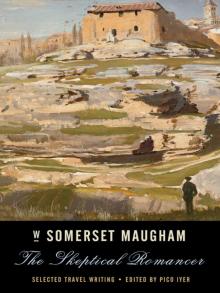 The Skeptical Romancer: Selected Travel Writing
The Skeptical Romancer: Selected Travel Writing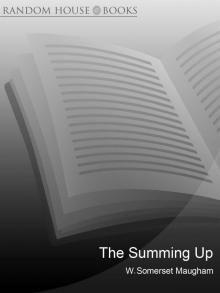 The Summing Up
The Summing Up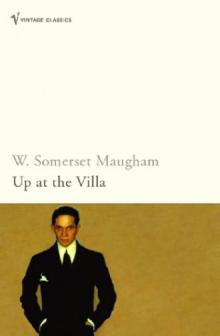 Up at the Villa
Up at the Villa The Razor's Edge
The Razor's Edge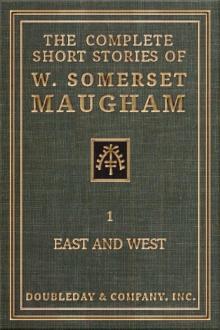 The Complete Short Stories of W. Somerset Maugham: East and West (Vol. 1 of 2))
The Complete Short Stories of W. Somerset Maugham: East and West (Vol. 1 of 2))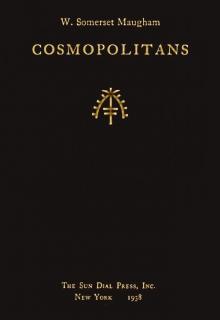 Cosmopolitans
Cosmopolitans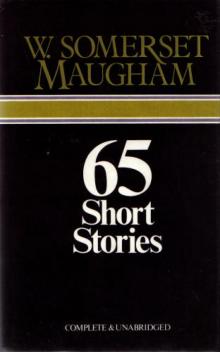 65 Short Stories
65 Short Stories Ah King (Works of W. Somerset Maugham)
Ah King (Works of W. Somerset Maugham)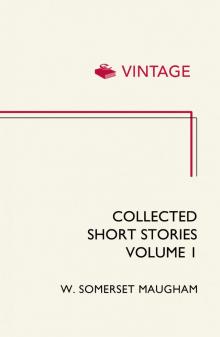 Collected Short Stories: Volume 1
Collected Short Stories: Volume 1 Collected Short Stories Volume 2
Collected Short Stories Volume 2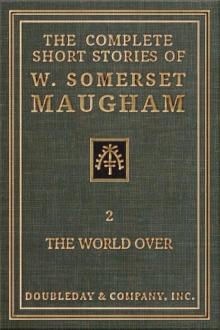 The Complete Short Stories of W. Somerset Maugham - II - The World Over
The Complete Short Stories of W. Somerset Maugham - II - The World Over Collected Short Stories Volume 4
Collected Short Stories Volume 4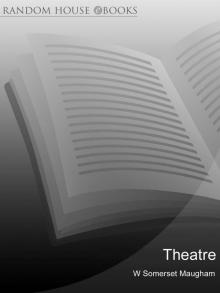 Theatre
Theatre Short Stories
Short Stories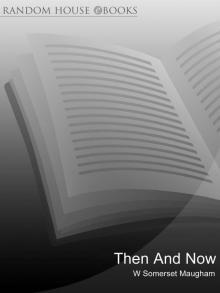 Then and Now
Then and Now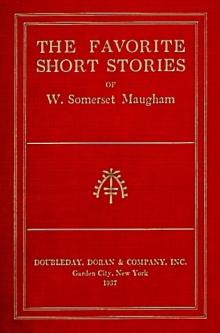 The Favorite Short Stories of W. Somerset Maugham
The Favorite Short Stories of W. Somerset Maugham Of Human Bondage
Of Human Bondage The Magician
The Magician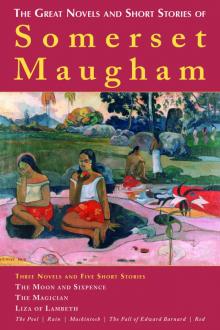 The Great Exotic Novels and Short Stories of Somerset Maugham
The Great Exotic Novels and Short Stories of Somerset Maugham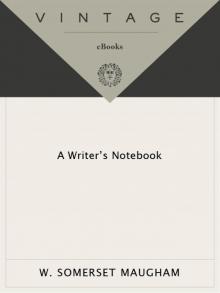 A Writer's Notebook
A Writer's Notebook Christmas Holiday
Christmas Holiday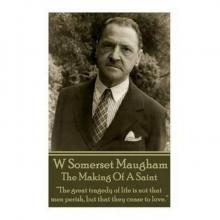 The Making of a Saint
The Making of a Saint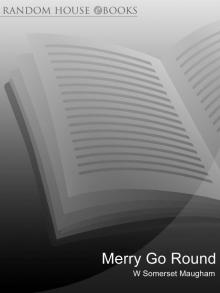 Merry Go Round
Merry Go Round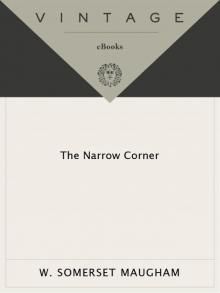 The Narrow Corner
The Narrow Corner Collected Short Stories Volume 3
Collected Short Stories Volume 3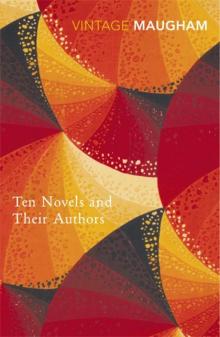 Ten Novels and Their Authors
Ten Novels and Their Authors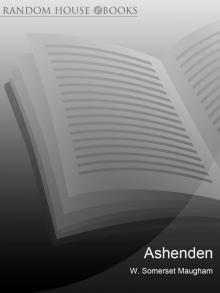 Ashenden
Ashenden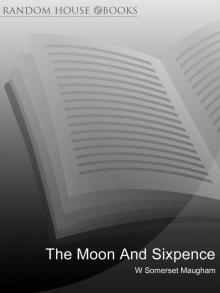 The Moon and Sixpence
The Moon and Sixpence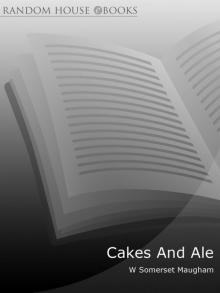 Cakes and Ale
Cakes and Ale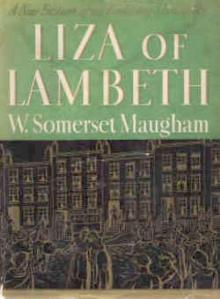 Liza of Lambeth
Liza of Lambeth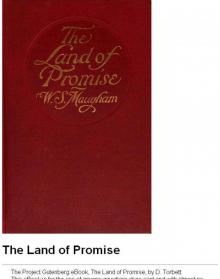 The Land of Promise: A Comedy in Four Acts (1922)
The Land of Promise: A Comedy in Four Acts (1922)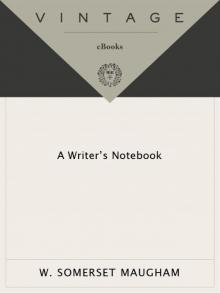 A Writer's Notebook (Vintage International)
A Writer's Notebook (Vintage International)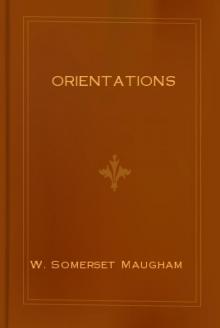 Orientations
Orientations Selected Masterpieces
Selected Masterpieces Mrs Craddock
Mrs Craddock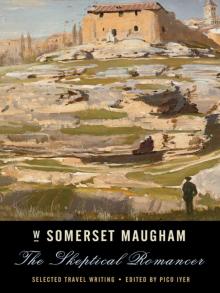 The Skeptical Romancer
The Skeptical Romancer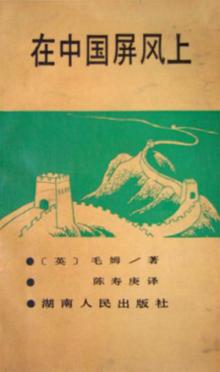 On a Chinese Screen
On a Chinese Screen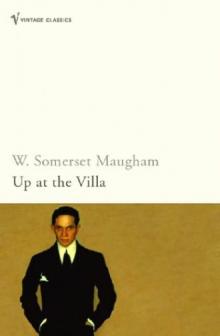 (1941) Up at the Villa
(1941) Up at the Villa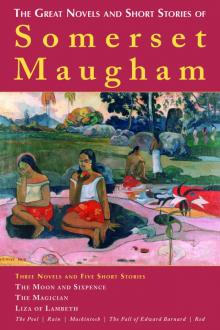 The Great Novels and Short Stories of Somerset Maugham
The Great Novels and Short Stories of Somerset Maugham Ah King
Ah King The Explorer
The Explorer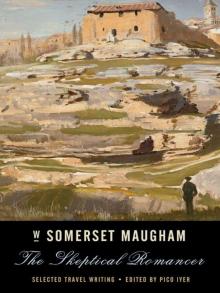 The Skeptical Romancer: Selected Travel Writing (Vintage Departures)
The Skeptical Romancer: Selected Travel Writing (Vintage Departures)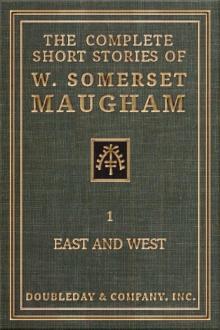 The Complete Short Stories of W. Somerset Maugham - I - East and West
The Complete Short Stories of W. Somerset Maugham - I - East and West